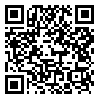BibTeX | RIS | EndNote | Medlars | ProCite | Reference Manager | RefWorks
Send citation to:
URL: http://ijme.tums.ac.ir/article-1-5760-en.html

 , Samaneh Tirgar *
, Samaneh Tirgar * 
 2, Farzaneh Zahedi3
2, Farzaneh Zahedi3 
 , Soodeh Tirgar4
, Soodeh Tirgar4 
 , Farideh Shariati5
, Farideh Shariati5 
 , Bagher Larijani6
, Bagher Larijani6 

2- Endocrinology and Metabolism Research Center, Endocrinology and Metabolism Research Institute, Tehran University of Medical Sciences, Tehran, Iran;
3- Department of Medical Ethics, Endocrinology and Metabolism Research Center, Endocrinology and Metabolism Research Institute, Tehran University of Medical Sciences, Tehran, Iran;
4- Quran and Hadith University, Tehran Pardis, Share Rey, Tehran, Iran
5- University of Imam Sadegh, Tehran, Iran
6- Medical Ethics and History of Medicine Research Center, Tehran University of Medical Sciences, Tehran, Iran.
Despite all recent advancements in medical sciences and the related technologies, the concept of death still remains obscure. It can be asserted that as death includes both physical and spiritual dimensions, medicine alone is not capable of fully illuminating its different features. Therefore, inter-disciplinary collaboration between different branches of science such as Quranic studies, humanities, and philosophy seems necessary in order to shed some light on this hitherto undiscovered subject. Through description of what the soul experiences before and during death, such collaborations may even enrich the knowledge and broaden the minds of physicians who are capable of the analysis of physical changes caused by death. This insight can promote the ethical decision-making process as well as the provision of end-of-life care and spiritual support in different stages of death. The current research, as a library literature review, endeavors to provide a descriptive view of death from a medical perspective, and then, a Quranic depiction of its different stages through an analysis of verses and quotations from the holy Quran and Islamic scriptures whose primary focus is the process of dying. The final discussion section presents some similarities and differences observed between viewpoints and raises questions which can be considered as being of great practical importance in terms of provision of necessary end-of-life spiritual support. We hope that further research in this field can better clarify the issues raised in this article so that practical measures aiming at the provision of Quran-based spiritual end-of-life care are designed and implemented.
Received: 2016/06/8 | Accepted: 2016/09/11 | Published: 2016/10/9
| Rights and permissions | |
 |
This work is licensed under a Creative Commons Attribution-NonCommercial 4.0 International License. |



